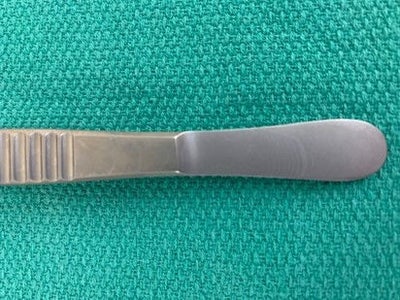Protecting Surgical Instruments: The Impact of Water Quality on Sterilization
Understand the impact of water quality on sterilization and learn how to protect surgical instruments from corrosion and contamination.
In brief
- Water quality is crucial for the proper cleaning and sterilization of surgical instruments.
- Poor quality can lead to stains, corrosion and compromised patient safety.
- Using systems like reverse osmosis and deionized water can remove impurities and prevent damage to surgical instruments.
- Regular testing, equipment maintenance and staff training helps ensure high water quality and safe surgical practices.
When it comes to surgery, every detail counts. This is especially true when it comes to the cleanliness and integrity of surgical instruments. However, there could be an invisible threat looming in your facility that could compromise the integrity of your procedures–the quality of water used to clean and sterilize these surgical instruments. Understanding how water quality affects surgical instruments can help keep them functional and durable over time.
Why Water Quality Matters in Surgical Instrument Cleaning
Water quality has a significant influence on the proper sterilization and cleaning of surgical instruments. Different factors like mineral content, pH levels and the presence of other contaminants can affect the performance of washing and sterilization systems. If it’s discovered that your water quality is not up to standard, it can cause problems for your facility.
For example, instruments and containers can develop different types of stains due to poor water quality.
Common Signs of Poor Water Quality in Surgical Instruments
Common issues include:
White chalky residue, which typically indicates excess minerals like calcium or magnesium.1

New instruments turning a hue of blue or showing signs of surface corrosion. This could suggest a chemical reaction between the instrument’s materials and contaminants in the water.2
Over time, the presence of certain chemicals and minerals in your facility’s water, such as high levels of chloride and sulfate, can lead to the corrosion of your surgical instruments. This can not only cause expensive damages to your instruments but can also compromise patient safety if a corroded instrument was ever to make its way to the operating room.
Water Systems and Surgical Safety
The type of water system your facility is using can play a significant role in the quality of water used during sterilization. Some of the most common methods used to help ensure water meets the necessary standards for medical use include:
Reverse Osmosis
- The process of reverse osmosis involves a semi-permeable membrane that works to filter out any unwanted molecules or large particles from the water.3 These systems can reduce the hardness of your water and remove any impurities that would build up on surgical instruments.
Deionized Water
- These systems remove ions and minerals from your water to make it highly pure. This type of water can be useful in surgical environments where ions have been leading to unnecessary stains and corrosion of instruments.
Proactive Steps to Help Maintain High Water Quality in Surgical Sterilization
Proactivity is what will help healthcare facilities ensure the water used in their sterilization processes is up to standard. Some steps to stay vigilant when it comes to your water quality include:
Conduct regular tests to monitor water quality.
- Facilities should prioritize consistent testing of their water quality using parameters like pH, conductivity and hardness as key indicators of an issue. This can help to identify any issues that need to be addressed promptly.
Equipment maintenance
- It’s highly recommended to maintain regular maintenance and inspection of your washers and sterilizers. You want to ensure these systems are operating according to the manufacturer’s specifications to prevent unnecessary poor water quality issues.
Staff training
- Take the time to educate your staff on the importance of water quality and how to properly handle surgical instruments during reprocessing. This can help to minimize any risk of water-related damage.
Ensuring Safe Surgical Practices through High Water Quality
Overall, the quality of water used during the reprocessing of surgical instruments is a critical component in helping deliver safe and effective patient care. High-quality water helps to ensure instruments are free from residues that could pose health risks or impair their function during surgery.
Contact Aesculap today to learn more about how we can help inspect the quality of your water to help you avoid costly equipment damage and ensure your surgical instruments are always ready for safe use.
Reference:
1Health Technical Memorandum 01-01: Management and Decontamination of Surgical Instruments (Medical Devices) Used in Acute Care.; 2016. Accessed August 27, 2024. https://depts.washington.edu/edgh/app-ipc/web/project-resources/washer-disinfectors.pdf
2Wall M. CIS SELF-STUDY LESSON PLAN. https://www.eventreg.purdue.edu/info/central-service/pdf/cis/CIS280.pdf
3Silberglitt, R., Wong, A., Bohandy, S. R., Chow, B. G., Clancy, N., Hassell, S., Howell, D. R., Jones, G. S., Landree, E., & Norling, P. (2009). Membranes, Filters, and Catalysts for Water Purification. In The Global Technology Revolution China, In-Depth Analyses: Emerging Technology Opportunities for the Tianjin Binhai New Area (TBNA) and the Tianjin Economic- Technological Development Area (TEDA) (1st ed., pp. 99–108). RAND Corporation. http://www.jstor.org/stable/10.7249/tr649tbna-teda.15

